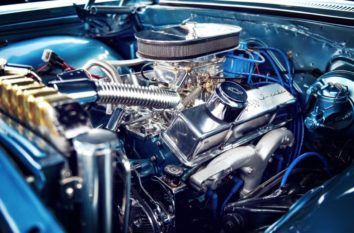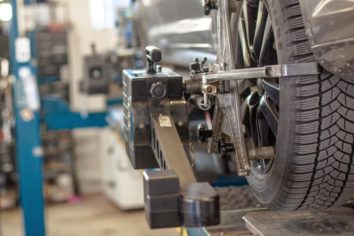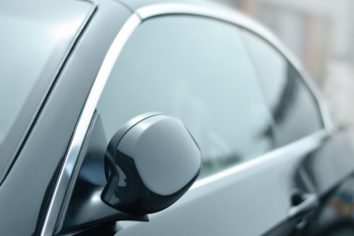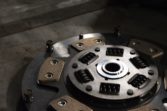Porsche Hybrid: A Comprehensive Overview and Analysis

Introduction:
Porsche has long been recognized for its high-performance sports cars. However, with the growing focus on sustainability and environmental consciousness, Porsche hybrid models have gained significant attention. In this article, we will provide a thorough overview of Porsche hybrid vehicles, discussing what they are, the various types available, and their popularity in the market. Additionally, we will delve into quantitative measurements related to Porsche hybrids, highlighting their efficiency and performance. We will also explore the differences among various Porsche hybrid models, both in terms of technology and driving experience. Furthermore, we will present a historical analysis of the advantages and disadvantages of Porsche hybrids. Lastly, we will focus on the crucial factors that influence car enthusiasts’ purchasing decisions and conclude with a section optimized for Google search snippets.
1. Overview of Porsche Hybrid:

Porsche hybrid vehicles combine the power and performance associated with the brand’s sports cars with the environmental benefits of hybrid technology. These vehicles utilize a combination of an internal combustion engine and an electric motor to offer drivers enhanced fuel efficiency and reduced emissions. By seamlessly combining both these power sources, Porsche hybrids deliver impressive performance without compromising sustainability.
2. Types of Porsche Hybrids:
Porsche offers a range of hybrid models, each catering to different preferences and requirements. The lineup includes plug-in hybrids, mild hybrids, and hybrid variants of existing Porsche models. Popular Porsche hybrid models include the Cayenne E-Hybrid, Panamera 4 E-Hybrid, and the awe-inspiring 918 Spyder hybrid supercar. Each model combines electrification with Porsche’s renowned engineering to deliver an exhilarating driving experience.
3. Quantitative Measurements of Porsche Hybrid:
When exploring Porsche hybrids, it is important to consider quantitative measurements such as fuel efficiency, electric range, and acceleration. For instance, the Cayenne E-Hybrid boasts an impressive electric range of up to 30 miles, while the 918 Spyder hybrid supercar achieves mind-boggling acceleration from 0 to 60 mph in just 2.5 seconds. These figures highlight the remarkable performance potential of Porsche hybrids.
4. Differences Among Porsche Hybrid Models:
Although all Porsche hybrids share the brand’s commitment to outstanding performance and sustainability, there are notable differences among the models. These variations include power output, battery capacity, and driving characteristics. For instance, the Panamera 4 E-Hybrid emphasizes luxury and comfort, whereas the 918 Spyder prioritizes track performance. Understanding these distinctions enables buyers to choose a Porsche hybrid that aligns with their preferences and requirements.
5. Historical Analysis of Porsche Hybrid Advantages and Disadvantages:
Over the years, Porsche hybrids have undergone significant advancements and improvements. Initially, concerns regarding electric range and charging infrastructure hindered widespread adoption. However, Porsche addressed these challenges by offering plug-in hybrids with increased electric range and improved charging options. Despite these improvements, some disadvantages, such as higher upfront costs due to the complexity of hybrid systems, still exist. By acknowledging the historical development of Porsche hybrids, consumers can make well-informed purchasing decisions.
6. Crucial Factors for Car Enthusiasts:
When car enthusiasts consider purchasing a Porsche hybrid, several factors play a vital role in their decision-making process. These include performance, brand reputation, charging infrastructure, design, and price. Performance-oriented buyers may prioritize models with exceptional acceleration and handling capabilities, while others may focus on eco-friendliness and luxury features. Understanding these decisive factors allows prospective buyers to select the perfect Porsche hybrid model that meets their specific desires and requirements.
Conclusion:
Porsche hybrids represent a harmonious blend of performance and sustainability, catering to both driving enthusiasts and environmentally conscious individuals. With an extensive lineup of hybrid models, Porsche offers something for everyone, ensuring that the thrill of driving a sports car goes hand in hand with reduced carbon emissions. The continual development and advancement of Porsche hybrid technology contribute to the brand’s commitment to a greener future. By staying at the forefront of innovation, Porsche has established itself as a leader in the realm of high-performance hybrid vehicles, consistently providing exciting driving experiences without sacrificing environmental responsibility.
FAQ
What is a Porsche hybrid?
What types of Porsche hybrids are available?
What factors should I consider when buying a Porsche hybrid?
Fler nyheter
Motorrenovering: Ge nytt liv åt din motor
Introduction: Porsche has long been recognized for its high-performance sports cars. However, with the growing focus on sustainability and environmental consciousness, Porsche hybrid models have gained significant attention. In this article, we will ...
06 juni 2025
Bilverkstad i Norrtälje: Din guide till kvalitativ fordonsservice
Introduction: Porsche has long been recognized for its high-performance sports cars. However, with the growing focus on sustainability and environmental consciousness, Porsche hybrid models have gained significant attention. In this article, we will ...
04 juni 2025
Billackering i Sjöbo: Professionell hjälp vid lackskador
Introduction: Porsche has long been recognized for its high-performance sports cars. However, with the growing focus on sustainability and environmental consciousness, Porsche hybrid models have gained significant attention. In this article, we will ...
03 juni 2025











